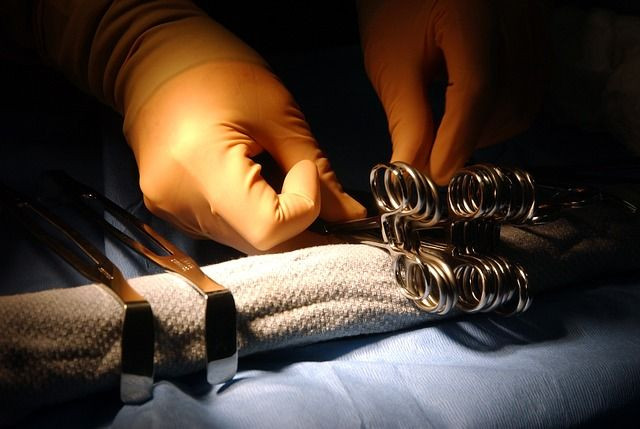Penile Cancer Treatment 2017: Brachytherapy May Serve As “Organ-Sparing” Alternative To Surgery

Penile cancer is most commonly treated with surgery, but this treatment option, while life-saving, can often result in a loss in both sexual and urinary function for the men. Now, new research suggests that this doesn’t have to be the case, and brachytherapy, a type of radiology treatment, has equally effective results in treating penile cancer, but also helps more men retain function in their sex organ.
In a new study, recently presented at the European Society for Radiotherapy and Oncology (ESTRO) 36 Conference, researchers found that brachytherapy, a type of radiotherapy that involves inserting radioactive wires in or near the tumor, may be a better option for penile cancer treatment than surgery. Penile cancer is incredibly rare, with the American Cancer Society estimating that only about one in 100,000 men are affected. This makes it difficult to gather enough data to show which treatment options are most effective. However, this recent study is based on results from the largest group of men treated for cancer of the penis by a singe institutions, and may help to set a precedent for how the illness is treatment in the future.
Read: From Penile Cancer To Sexual Pleasure, 6 Little-Known Facts About Your Penis' Foreskin
According to a recent press release on the findings, the traditional treatment option for penile cancer is a surgery to remove the glans, the sensitive tissue at the end of the penis. While this often halts the spread and progress of the cancer, it can have a serious detrimental effect on a man’s well being. As identified by this research, brachytherapy offers similar satisfactory result without this side effect.
“This suggests that brachytherapy is an adequate upfront, organ-sparing strategy, which is usually associated with only mild to moderate toxicities,” explained study researcher Dr. Alexandre Escande, in a recent statement. “Men still have a good body image, and also sexual and urinary function for the majority."
The overall survival rate for brachytherapy was 79 percent, while the rate for surviving without the cancer recurring was 82 percent. Five years after treatment, 85 percent of the men survived with their penis fully intact, while only 6 percent of men underwent surgery for toxic side effects of the treatment, such as painful ulcerations. Only 4 percent of men (eight men) had to have their penises removed by surgery and 18 percent of men had partial surgery after their cancer returned.
“These results show that brachytherapy is the treatment of choice for selected patients whose cancer has not spread into the sponge-like regions of the erectile tissue in the penis - the corpus cavernosum,” added Escande. “It is effective at controlling and eradicating the cancer and allows a high number of men to preserve their penises.
According to the American Cancer Society, nearly all forms of penile cancers start in the skin cells of the penis, and most occur on the foreskin (in uncircumcised men) or on the glans. The condition is extremely rare in North America and Europe, accounting for less than one percent of cancers in men in the United States. Not being circumcised is noted as a risk factor for penile cancer, although the exact reason for this is not clear. Having HPV is another known risk factor for penile cancer.
Source: Abstract no: OC-0466, "Highlights of proffered papers" session at 11.50-12.30 hrs (CEST) on Monday, 8 May, Auditorium. The 36th annual congress of the European Society for Radiotherapy & Oncology.
See Also:
5 Sexually Transmitted Cancers; Symptoms To Know, Treatments, And Diagnosis
10 Rare Cancer Types, From 'Kissing Disease' To Penile Cancer
Published by Medicaldaily.com



























